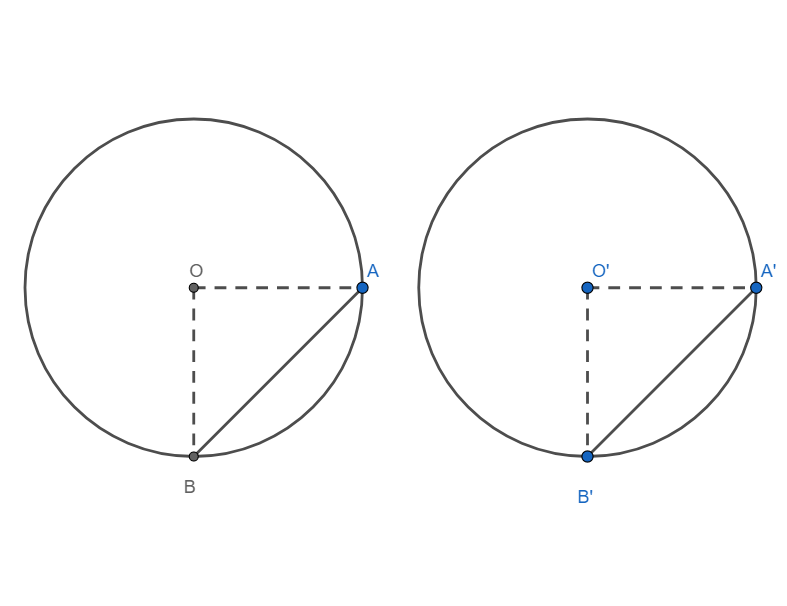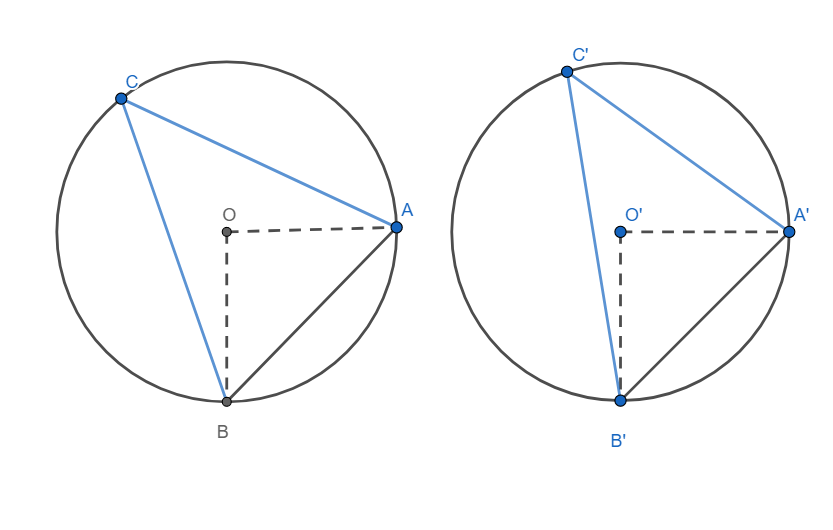Question
Question: Prove that the equal chords of two congruent circles subtend equal angles at their respective centre...
Prove that the equal chords of two congruent circles subtend equal angles at their respective centres.
Solution
Use the fact that the radii of two congruent circles are equal and hence prove that OA = O’A’ and OB = O’B’. Use the fact that since the chords are equal AB = A’B’ and hence prove that the triangle ABC and A’B’C’ are congruent and hence prove that ∠AOC=∠A′O′C′. Hence prove that the equal chords of congruent circles subtend equal angles at the centres of their corresponding circles.
Complete step by step answer:

Given: Two circles with centre O and O’ have equal radii. AB is the chord of the circle with centre O and A’B’ is a chord of the circle with centre O’.
To prove ∠AOB=∠A′O′B′
Proof:
Since the circle have equal radii, we have
OA = O’A’ and OB = O’B’
Now, in triangle AOB and A’O’B’, we have
AO = A’O’ (proved above)
OB = O’B’ (Proved above)
AB = A’B’ (Given).
Hence by S.S.S congruence criterion, we have
ΔAOB≅ΔA′O′B′
Hence, we have
∠AOB=∠A′O′B′ (Corresponding parts of congruent triangles)
Hence, equal chords of two congruent circles subtend equal angles at their respective centres.
Hence, proved.
Note: Alternative Solution: Using Sine rule.
We know that if R is the radius of circumcentre of a triangle ABC, then sinAa=sinBb=sinCc=2R

Consider two points C and C’ on the alternate segments as shown in the diagram above.
By sine rule, we have
sinCAB=2R⇒AB=2RsinC
Similarly, we have
A′B′=2RsinC′
Since AB = A’B’, we have
2RsinC=2RsinC′⇒sinC=sinC′⇒C=C′
We know that the angle subtended in the alternate segment is half the angle subtended at the centre.
Hence, we have
∠AOB=2∠C and ∠A′O′B′=2∠C′
Since ∠C=∠C′, we have
∠AOB=∠A′O′B′
Q.E.D
